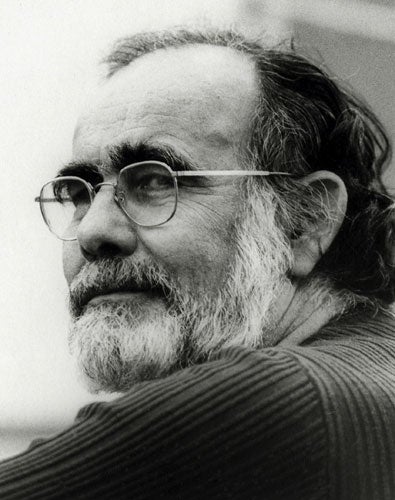Jerry Wexler, rhythm 'n' blues pioneer, dies aged 91

Jerry Wexler, the invisible force behind some of the legends of American 20th century music, died yesterday from congestive heart failure. He was 91.
It was never his mouth at the mic or his fingers on the keyboard or guitar strings, but as a producer, record-label owner and journalist, he supervised recordings by the likes of Ray Charles, Aretha Franklin and Bob Dylan.
It was while working as a reporter for Billboard magazine in New York in the late Forties that Wexler, the son of an immigrant window-washer, coined the term "rhythm and blues", to describe a new sound coming out of black America in the Deep South and Detroit, as a more palatable alternative to what, until then, had been labelled as "race records".
Years later, as his reputation as a producer took hold, Wexler was invited to join Ahmet Ertegun, a similarly revered figure in the industry who died in 2006, as a partner in Atlantic Records. Together, they turned the company into the first stop for emerging African-American musicians. Later, it launched a partnership with Memphis-based Stax Records – home of Otis Redding – and became home to the likes of Led Zeppelin and the Rolling Stones.
He worked on multiple albums with Aretha Franklin, the Queen of Soul, helping her deliver such hits as "RESPECT", originally sung by Redding. The success of Franklin helped put Atlantic and Wexler on the musical map. Other acts to emerge also included the Coasters and hits such as "Yakety Yak" and "Poison Ivy".
Calling his death a "tremendous loss", his son Paul said: "The number of artists that he was involved with and helped significantly or just made great records with, the list is almost unbelievable. And many of them are gone now." Wexler's daughter Lisa was also at his side in Sarasota, Florida, when he died.
Another artist who found his way to the door of Wexler, though after he had left Atlantic, was Bob Dylan. Wexler helped him towards his first Grammy award with the album Slow Train Coming in 1969. Others who drew on the encouragement of Wexler were Wilson Pickett ("In the Midnight Hour"), Solomon Burke, and Percy Sledge ("When A Man Loves A Woman"). He also produced Dusty Springfield's Dusty in Memphis.
"He loved black music, R&B music and rhythm and blues was his foundation. He had a feeling for it. He had the knack to keep it going in his heart and recognise the talent that he felt was real," Burke said. "Jerry Wexler didn't change the sound of America, he put the sound to the public. He opened the doors and windows to the radio stations ... and made everybody listen."
Wexler was, in fact, not beyond leaving the recording booth and grabbing an instrument if he was moved to. His 1993 book of memoirs, Rhythm and the Blues, tells of one occasion when he snatched a tambourine while recording with Charles. "Who's that?" the blind Charles demanded to know. "Me," Wexler replied. To which Charles replied, "You got it, baby!"
Subscribe to Independent Premium to bookmark this article
Want to bookmark your favourite articles and stories to read or reference later? Start your Independent Premium subscription today.

Join our commenting forum
Join thought-provoking conversations, follow other Independent readers and see their replies